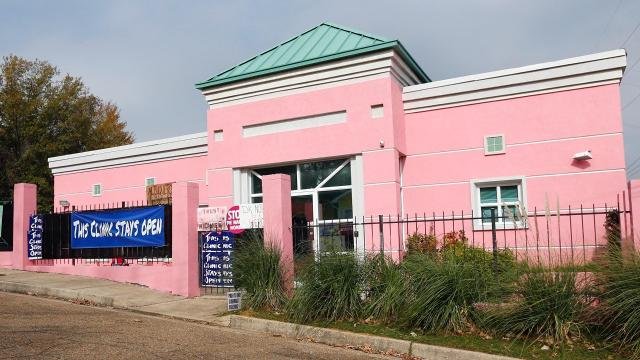The neon pink house in Mississippi’s capital’s mixed district has many names. It is an abortion factory, according to the anti-abortion demonstrators whose rallies prompted a noise ordinance. The pink home, according to those who live and volunteer there, is Mississippi’s only haven for women seeking abortions.
One Of The Last Mississippi’s Abortion Clinic Faces Legal Issues
The sole abortion clinic in Mississippi is now witnessing what could be the most difficult challenge. The United States Supreme Court announced Monday that it would listen to arguments this fall in a case involving a Mississippi bill that would ban abortions after 15 weeks of pregnancy, a case intended to test how far a court recreated under former President Donald Trump can go to limit the right to an abortion.

Because of the legal battle, the 2018 Mississippi bill has been put on hold. If the justices allow it to take place, it will not have a significant impact on who can get an abortion in Mississippi. Abortions are not performed until 16 weeks of pregnancy at Jackson Women’s Health Organization. However, clinic owner Shannon Brewer believes that if the ban is upheld, politicians in conservative states will press for even further limits.
Thousands of women have crossed state borders for abortions since states adopted tougher rules and the number of clinics has decreased. The Associated Press reported in 2019 that between 2012 and 2017, at least 276,000 women aborted their pregnancy outside of their hometown. The percentage of women ending a pregnancy in another state increased significantly in regions of the Midwest, South, and Mountain West, especially where a shortage of hospitals meant the nearest provider was in another state or where less stringent laws made it simpler and faster to get an abortion there.
Since there are no physicians able to perform abortions in Mississippi, five doctors who were out of the state traveled through Jackson. Many patients drive for hours from small towns in one of the country’s poorest counties, first for therapy and then for the abortion 24 hours later.
One woman who had two pregnancies terminated at the clinic says she had never regretted her choices. She was in her 30s at the time and said she did what was right for herself and her child.
As she and the other woman waited at the facility, they spoke to each other. She remembered their stories that her father, another by her employer, abused one, and yet another was in medical school.
She wants women to know that it’s okay and that they don’t have to feel sorry about it, she says. She talked to The Associated Press on the condition of anonymity because she is involved in a legal battle with the father of her child and feels that discussing her abortions openly could jeopardize her chances in court.
Anti-abortion demonstrators clash with volunteer escorts outside the facility. Demonstrators sometimes attempt to prevent vehicles from approaching the clinic parking space. Few people pray, sing, or display posters depicting gruesome images of aborted fetuses. Others scale ladders to peer over a fence that encircles the facility, swearing at volunteer escorts recognized as pink house defenders and the patients they follow inside.
According to clinic director Brewer, all of the regulations and marches will not prevent abortions in Mississippi but will instead make them riskier. She claims that those who condemn abortion appear to care for women and their future offspring, but if they cared, they would spend more time taking care of children when they are born, along with providing for better health care or childcare.
It will not ban abortions in Mississippi. Before Roe v. Wade, abortions were legal in Mississippi, according to Brewer. She believes people are either not seeing this through or simply do not care.
